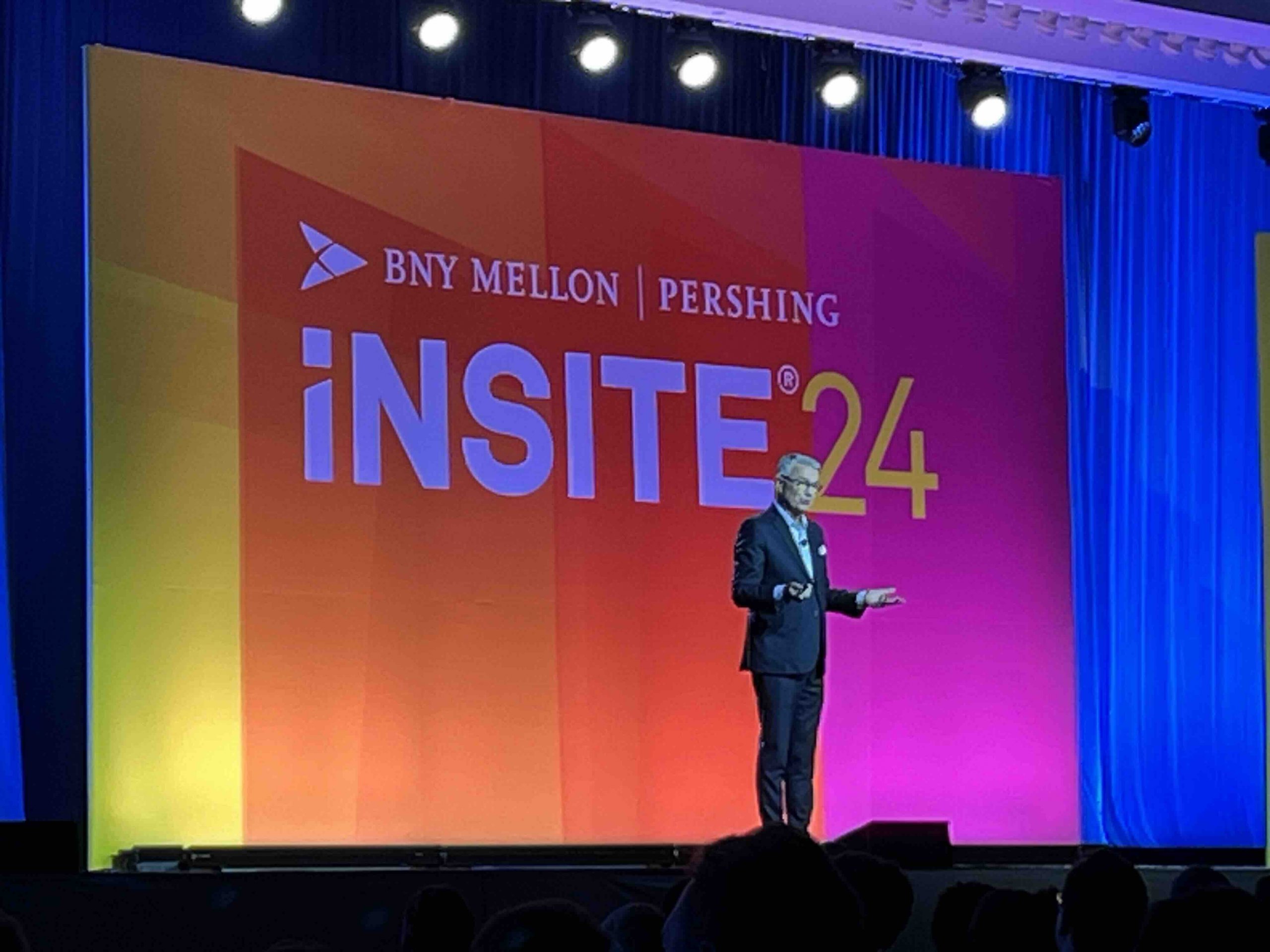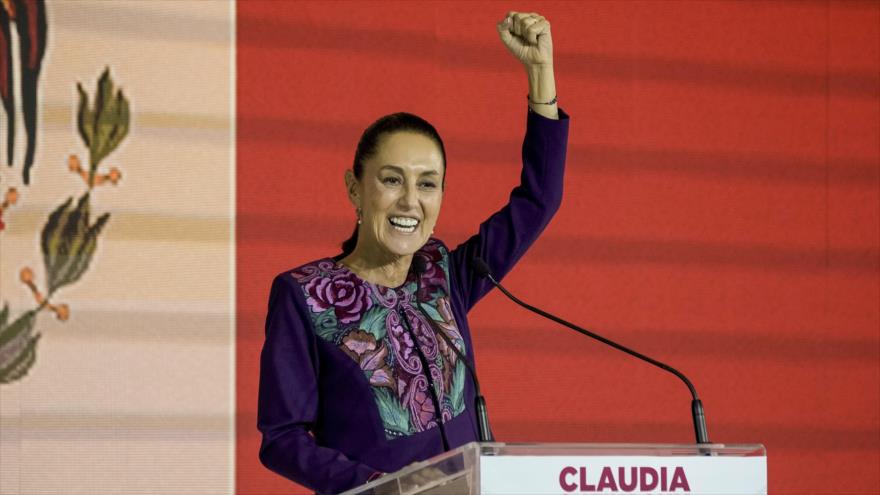
Finally, June has arrived, bringing with it the European Central Bank (ECB) meeting, which will take place tomorrow. All attention is focused on what the monetary institution will say and do, as the forecast is that it will announce a first rate cut of 0.25%. According to analyses by international managers, inflation continues to show some resistance to decline—the core inflation surprised on the upside again—but this should not justify the ECB not lowering rates on June 6th.
Moreover, investment firms warn that any different scenario would be a major surprise and provoke a strong reaction in the markets.
The latest report from Bank of America states that tomorrow’s rate cut should be the first 25 basis point reduction out of 200 for monetary easing between June 2024 and 2025. “We expect few changes in the ECB’s guidance in the press release, basically acknowledging the first move, data dependency, and the need to proceed with caution. Small upward revisions to short-term inflation (no changes in the medium-term) will likely also feed this caution, and the press conference will likely indicate that there is no preset path and that decisions will be made meeting by meeting,” says Rubén Segura-Cayuela, chief European economist at Bank of America.
Segura-Cayuela, who maintains his conviction that eurozone interest rates will be at 2% next year, predicts 75 basis points of cuts for 2024 and 125 basis points for 2025. “We also expect Lagarde to signal once again that there will be a bit more information in July to decide on the next move and much more in September, a clear indication that the next move is more likely in September than in July. Finally, similar to recent comments by Lane this week or Lagarde in the last press conference, we would expect a clear distinction between a phase of reducing the level of monetary policy restriction and a phase of rate normalization, a clear signal that, for now, they are not in a hurry to lower rates,” he adds.
The Issue is the Pace
According to Franck Dixmier, global CIO of Fixed Income at Allianz Global Investors, after a long phase of unchanged rates, the start of a cycle of cuts raises several questions about the next steps: What is the target for the ECB’s terminal rate? How quickly will the central bank reach it? Investors will be very attentive to any hint of answers to these questions, as well as announcements of new macroeconomic forecasts. “While there is consensus on this first rate cut, the pace of future cuts is a lively debate among members of the institution. Inflation expectations are anchored at levels close to the ECB’s target (five-year inflation swaps were at 2.3%), which is a good indicator of investor confidence in the ECB’s ability to meet its mandate. The Council will focus more on the inflation trajectory towards the ECB’s price stability target and its degree of confidence that inflation will remain at that level,” he notes.
Ulrike Kastens, economist for Europe at DWS, recalls that almost all members of the ECB Council have spoken in favor of a possible interest rate cut in June. “On June 6th should officially confirm that the ECB will cut its official interest rate by 25 basis points to 3.75%. However, what matters even more is the path forward. The ECB is willing to eliminate the maximum level of restriction, as Philip Lane said,” Kastens explains.
This view is also shared by Cristina Gavín, head of Fixed Income and fund manager at Ibercaja Gestión: “The key is not in this week’s rate cut, but in what the ECB’s course of action will be in the upcoming meetings, so we should pay attention to Lagarde’s press conference after the Council. The fact that the Fed is also delaying its rate cuts due to price pressures, although not a determining factor, can also influence the mood of ECB members regarding additional cuts.”
In the opinion of Germán García Mellado, fixed income manager at A&G, since the focus will be on trying to glimpse the pace of cuts from June and on the evolution of the data, it is likely that the ECB will be very cautious about giving hints about its next steps. “In any case, it seems unlikely that, with the latest published data, they will anticipate a rise for the next meeting in July, so they will likely leave everything open for September when they will update the macroeconomic projections again. It will also be relevant to see the new macroeconomic projections for the coming years, where both growth and inflation expectations will probably be slightly revised upwards, which will not provide certainty about future rate cuts,” García Mellado points out.
Regarding the ECB’s speech, Daniel Loughney, head of Fixed Income at Mediolanum International Funds (MIFL), adds: “We expect the ECB’s speech to be moderate in relation to market expectations, as we believe inflationary pressures are decreasing more than expected. The ECB will likely highlight the irregular nature of upcoming CPI releases. There are a series of idiosyncratic statistical influences on inflation at the moment that are difficult to quantify precisely: like the launch of a cheap national transport ticket in Germany a year ago. Comments on service price inflation will draw the most attention, as it has remained quite elevated lately.”
One of the conclusions put forth by Kevin Thozet, member of the Investment Committee at Carmignac, is that the market expectations of less than one rate cut per quarter for the rest of the year seem prudent. “We wouldn’t be surprised to see the ECB proceed with three or four cuts, and potentially more, in the case of an unforeseen slowdown,” he indicates. In Thozet’s opinion, “markets seem to agree on the prospect of three ECB cuts in 2024, with the official interest rate at the 3% threshold, or above, within 12 months. This scenario seems optimistic, as it doesn’t account for what the ECB might do if the economy slows down. While we are constructive regarding the short end of the yield curve, we can’t rule out underperformance of long rates due to better economic prospects and a smaller ECB balance sheet.”
Looking at the Data
In this regard, the data once again becomes the argument and reason that makes the ECB’s indications on the pace of cuts more important than the first rate cut itself. “There is no doubt that some central bankers have in mind rapid further interest rate cuts and may already favor another reduction in July, while others prefer a more cautious approach. Faced with uncertainty about inflation trends, a hawkish tone is likely to prevail, emphasizing data dependency and a meeting-by-meeting approach. President Lagarde’s central message is expected to avoid explicitly committing to another rate cut in July. Overall, we maintain our forecast of three more rate cuts until the end of March 2025,” adds Kastens.
Orla Garvey, senior fixed income portfolio manager at Federated Hermes Limited, reminds that the market already expects the ECB to cut rates tomorrow, although “what comes after the next rate cut will be more difficult for the central bank to communicate and for the markets to assess.” In her opinion, significant progress has been made towards the inflation target, but “the future path is likely to be more turbulent.” Combined “with an improvement in the growth outlook in the eurozone, markets might have less confidence in the future trajectory of the ECB’s key interest rates,” she points out.
For Felix Feather, economist at abrdn, since they consider that service inflation and wage growth remain too high for consecutive cuts in June and July, it could be a “hard line cut.” Moreover, he warns that this Friday’s year-on-year inflation will be key. “A rebound in headline inflation is expected, but it would have to be very large for the ECB to deviate from its goal of cutting in June. However, what happens with core service inflation will be key to setting expectations on the ECB’s path beyond June. The recent strength in labor cost growth could mean that service inflation strengthens, leaving the ECB on hold for a while after the initial cut,” adds Feather.
According to Martin Wolburg, senior economist at Generali AM (part of the Generali Investments ecosystem), the latest data on official German wages for the first quarter (+6.2% year-on-year) and, at the eurozone level, negotiated wage growth in the first quarter strengthened to 4.7% year-on-year, pointing to an upside risk for inflation. “The ECB’s own indicators suggest that negotiated wage growth will be around 4% in 2024 compared to 4.5% in 2023,” he notes.
Wolburg believes that while the labor market remains healthy, it is exaggerated to worry about wage growth. “But given the concerns of Governing Council members, we now consider it more likely that the ECB will cut only once a quarter starting in June. Even so, we believe the market has gone too far in reducing cumulative ECB rate cuts for 2024 to only about 60 basis points,” he says
The ECB Before the Fed: Impact on the Bond Market
According to investment firms, we are about to witness an uncommon situation in monetary policy: the ECB might reduce its reference interest rate before the Federal Reserve, for the first time since the early 2000s. The reason, according to Raphael Olszyna-Marzys, international economist at J. Safra Sarasin Sustainable AM, is that the European economy is in a very different situation compared to the United States. “The output gap is probably negative in the eurozone, and the economy has not grown for most of the past two years (the opposite of the U.S.). Credit growth is extremely weak, suggesting that the ECB’s policy is restraining activity. Eurozone inflation is clearly trending downward (much of the inflation was due to the energy crisis), despite relatively stable service inflation. Consequently, we believe the ECB has room to cut rates four times this year, starting in June,” says Olszyna-Marzys.
For Catherine Reichlin, head of analysis at Mirabaud Group, one of the keys to this difference between the ECB and the Fed lies in inflation and the perception of its evolution. While the ECB says it is truly confident that inflation is under control, the situation is different for the Fed. Since the April inflation figures, published in mid-May, were slightly below expectations, the Fed has been moderating market expectations about the timing and magnitude of future rate cuts. A multitude of central bankers are talking about the issue, with a common thread: it will take more than one data point to ensure that inflation is under control and that the monetary easing cycle can begin at the end of this year or early next year,” explains Reichlin.
In other words, volatility is the order of the day, and bond yields are fluctuating regularly, like the 10-year U.S. bond, which started the year at **3.89%**, rose to **4.70%** at the end of April, and is currently at **4.43%**. “Although expectations are different, the performance of government bond markets is similar: **-1.56%** in the United States and **-1.39%** in Europe. In Europe, the disparities are considerable: **-2.57%** in Germany versus **+0.58%** in Italy, which has benefited from a narrowing of its risk premium,” she adds.
The Mirabaud expert believes that in Switzerland, the bond market is “less bad” but still in negative territory this year with **-0.91%**. “Among the central banks that have already cut rates (Switzerland), those preparing to do so (Europe), and those delaying (United States), it is interesting to observe that their bond markets are following their course without fully incorporating the expectations of rate cuts. Additionally, bond yields, which are near their highs of recent years, still offer good entry opportunities for investors who have not yet decided to buy bonds,” concludes Reichlin.









